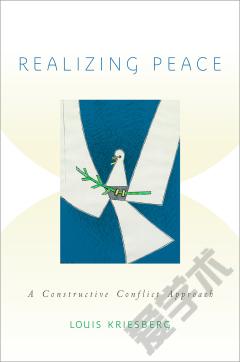Libya's Fragmentation —— Structure and Process in Violent Conflict
----- 利比亚分裂:暴力冲突的结构与过程
After the overthrow of the Qadhafi regime in 2011, Libya witnessed a dramatic breakdown of centralized power. Countless local factions carved up the country into a patchwork of spheres of influence. Almost no nationwide or even regional organizations emerged, and no national institutions survived the turbulent descent into renewed civil war. Only the leader of one armed coalition, Khalifa Haftar, has managed to overcome competitors and centralize authority over eastern Libya. As he attempts to seize power in the capital Tripoli, dozens of armed groups in western Libya have coalesced to offer tenacious resistance.Rarely does internal division and political fragmentation occur as radically as in Libya. This has been the primary obstacle to the re-establishment of central authority. This book analyzes the forces that have shaped the country's trajectory since 2011. Questioning widely held assumptions about the role of Libya's tribes in the revolution, Wolfram Lacher shows how war transformed pre-existing social structures and explains why Khalifa Haftar has been able to consolidate his sway over the northeast. Based on hundreds of interviews with key actors in the conflict, Lacher advances a new approach to the study of civil wars, placing the social ties of actors at the centre of analysis and exploring the link between violent conflict and social cohesion.
{{comment.content}}








 京公网安备 11010802027623号
京公网安备 11010802027623号